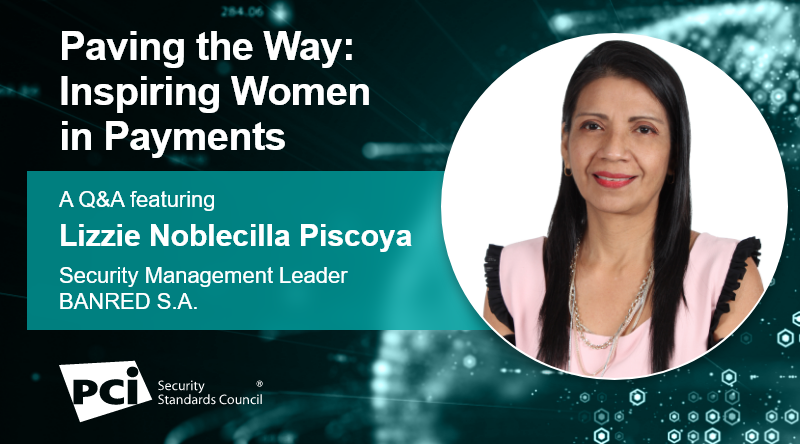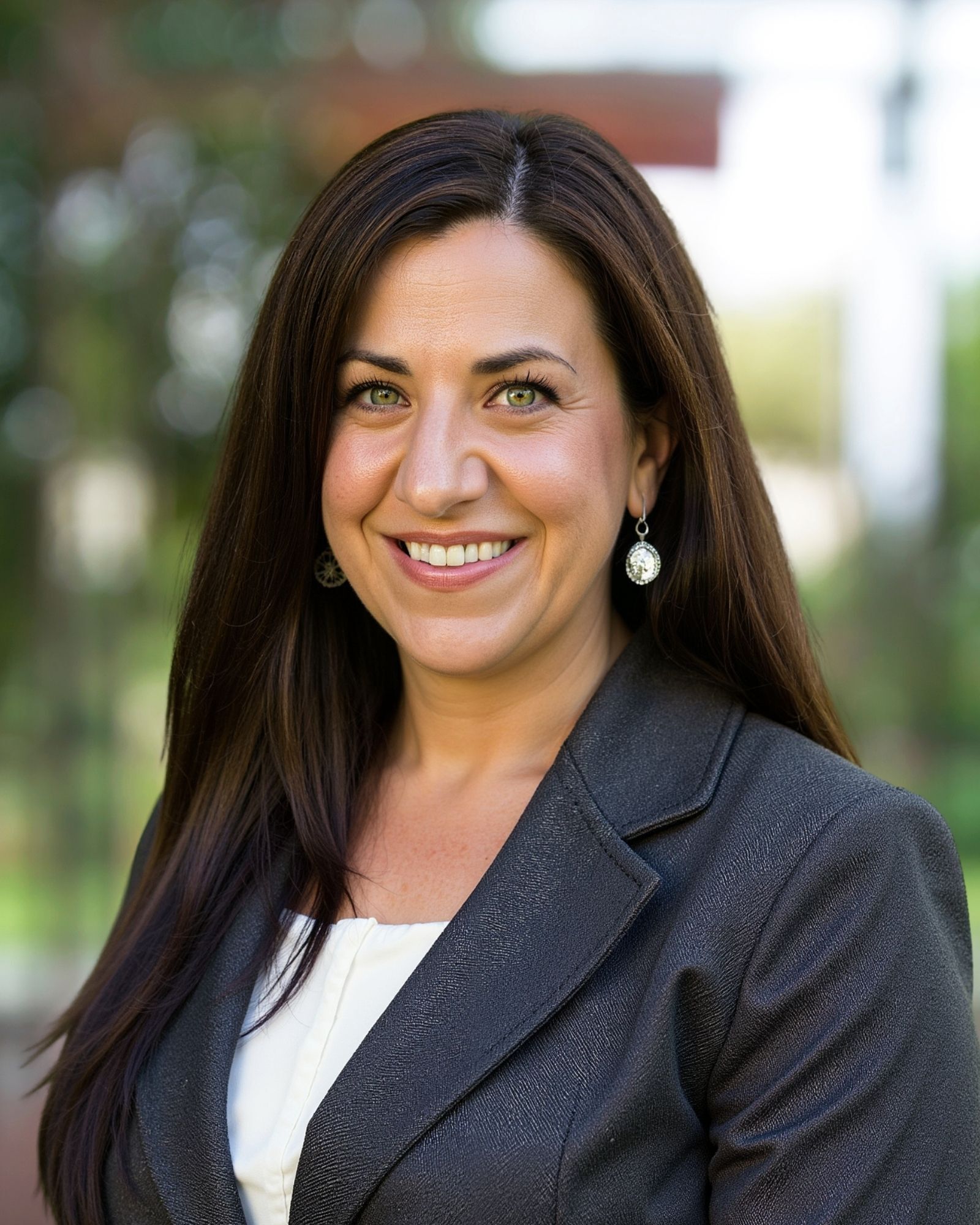Despite a lack of women in technology professions, Lizzie Noblecilla Piscoya believes that women have a promising future in cybersecurity. Lizzie believes that women, by their very nature, have an enormous capacity to adapt and to face new challenges, making them a perfect fit for a dynamic industry that is constantly evolving. In this edition of our blog, Lizzie describes the path that led to her own success, and how other women can develop a passion for this industry as she did.
How long have you been at BANRED and what is your role?
Lizzie Noblecilla Piscoya: I have worked at BANRED since June 2000. I have been Security Management Leader within the Chief Information Security office for more than 18 years. I am also the principal representative of the Management for Compliance with the PCI DSS regulations, and the Data Government for Compliance with the Personal Data Protection Law.
Has your role evolved since the start of the Covid-19 pandemic and how so?
Lizzie Noblecilla Piscoya: The Covid-19 pandemic brought with it events that changed our way of life and changed the perception of the importance of cybersecurity. We had to adapt to a new way of working and we also experienced a notable increase in cybersecurity attacks, which resulted in great relevance to this topic and its impact on business continuity.
The organizations changed their conception, and it was the opportunity for the development and strengthening of security schemes; however, we have also seen the phenomenon in which cybersecurity became a "trending topic". This caused the appearance of pseudo experts in cybersecurity, both internally and externally, causing confusion and negative events to cybersecurity management.
All of the above has allowed us to evolve, giving us an unexpected leading role where we went from being spectators to being direct participants. This has also showed us that we could be resilient in the face of scenarios that change suddenly. We must have good interdisciplinary skills to minimize the risks of being exposed. By doing this, we achieved a synergy between cybersecurity and business strategy.
How did you get started in the payments industry? What led you to that career choice?
Lizzie Noblecilla Piscoya: I graduated from electronic engineering at a prestigious university in Ecuador. This led to my first job at MasterCard. At that time, I worked in technology for the implementation of the "Maestro" product. That acquired knowledge allowed me to get to BANRED, a company in which I have developed and grown professionally, obtaining several professional awards that have been one of the pillars for the achievement of personal happiness. While working at BANRED, the opportunity to implement the Security Government in the organization appeared. I decided to accept it without a doubt. This allowed me to discover how exciting it is to learn and work in the cybersecurity world. I am still convinced that it is a very dynamic activity; things can change or take unexpected turns, allowing you to realize the enormous capacity that human beings have to learn and adapt.
Who has been your biggest role model in shaping your career path?
Lizzie Noblecilla Piscoya: In my case, I am fortunate to have people who have been my example. I can mention my maternal grandfather and my father, who have been fundamental models in my life. They have had a great impact on who I am today as an individual and as a professional. Thanks to them, I learned about dedication, perseverance, respect, responsibility, honesty, the true value of a committed word, the satisfaction of a job well done and that if everything is done with love and true passion, it will always bear excellent fruit.
What is your proudest accomplishment in your career to date?
Lizzie Noblecilla Piscoya: The achievement for which I am most proud is that in 2014, I managed to lead BANRED to obtain certification in PCI DSS security standards, a certification that BANRED has managed to maintain for more than eight consecutive years.
Do you notice a lack of women in technology? If so, why do you think that is the case?
Lizzie Noblecilla Piscoya: There is indeed a lack of women in technology. According to my experience and expertise, I consider that there are still paradigms in society that have a great influence on decision-making at all levels. From the decision to educate ourselves in technological careers - despite the fact that we have an enormous capacity to achieve and face new challenges (by our nature we are disciplined, organized strategists, very good administrators and we even have a sixth sense that allows us to have a holistic view of events) - to the way in which women's participation in work spaces is seen, we are the ones who create our own limitations and it is the organizations who do not risk giving us the opportunity.
Many women in the tech industry have felt that their gender has affected the way that they are perceived or treated. Is ‘unconscious bias’ holding women back in the workplace and, if so, what can women do about it?
Lizzie Noblecilla Piscoya: Yes, indeed, as mentioned above, that "unconscious bias" is holding back the participation of women in the technology industry. I believe that we women should prepare ourselves, gather references that help us enrich our knowledge, and not be afraid to opt for technological careers. In addition to this, do not limit us when applying for a job. We have taken advantage of the opportunities that are presented or offered to us. We must be convinced that, with our skills and knowledge, we can build our way to become leaders in the industry.
What do you see as the future for women in technology roles/payments industry?
Lizzie Noblecilla Piscoya: We have a promising future as this is a very dynamic industry that requires professionals to be capable of analyzing the different business scenarios holistically and to be resilient to adapt to a constantly changing environment. It is time to change our paradigms and we have the great challenge of making our girls aware that they can take on great challenges. We must teach them values, to make them love science and be passionate about it; making them notice that each of our actions have logical, mathematical, and physical components. If they know how to exploit it, they can become successful professionals in the future, making an important contribution to society.
Were you given any advice during your career that has stuck with you? As a result, do you have a personal mantra or a famous quote that you live by?
Lizzie Noblecilla Piscoya: More than advice, I consider that I have received many lessons in many seasons of my life. These lessons have been conducted by various characters who, in one way or another, have positively influenced me both professionally and personally.
From these lessons, the one that has had the most impact on me is related to the fact that people can, throughout their lives, acquire a great wealth of knowledge and be very skilled. However, if we are not professionals with values, and we have not developed our "aptitude”, we will not be able to become excellent leaders who can manage the change required by the current and future generations. Additionally, my personal mantra is to always see the positive side of any event that arises, be it favorable or adverse, and to always be open to new ideas focused on continuous improvement.
What advice would you impart to other women about how to succeed in the payment industry or in a technology-based field in general? What advice would you give to your younger self?
Lizzie Noblecilla Piscoya: In general, I would say that we have a great ability. We must be firm, and we must face new challenges with great resilience because we live in a world of constant changes that lead us to reinvent ourselves daily, to establish new strategies, to think more beyond our limits and to seek, at all times, a balance between our personal and professional lives.
The advice I would give to my younger self would be to take more risks, to be more adventurous, to know that life will bring you endless opportunities, and that you may be wrong but know that you can always learn and improve.


